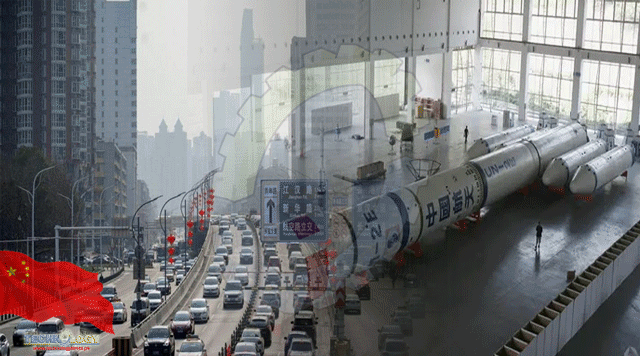China’s central city of Wuhan has vowed to develop a 100-billion yuan ($15.7 billion) space industry by 2025 and become the country’s “valley of satellites,” signalling a deepening push by China to become a major space power by 2030.

China’s central city of Wuhan has vowed to develop a 100-billion yuan ($15.7 billion) space industry by 2025 and become the country’s “valley of satellites,” signalling a deepening push by China to become a major space power by 2030.
According to a notice from the city government on Wednesday, Wuhan is offering firms up to 50 million yuan ($7.86 million) in financial incentives each in projects related to the manufacturing of satellites, rockets and spacecraft.
The Wuhan city government will encourage companies to use locally sourced equipment, software and services. If a firm uses local products in more than 10 percent of the production of high-orbiting and low-orbiting satellites as well as spacecraft, it will get financial incentives of up to 15 million yuan ($2.36 million). If local products account for more than 30 percent, the firm will get up to 50 million yuan ($7.86 million).
Two steps of ‘valley of satellites’
By 2025, with a new generation of space launch and application, Wuhan will develop four leading industries to boost the city’s space industry and empower a first-class space industry pilot zone in China.
These four leading industries include space launch vehicle and launch services, satellite platform and payload, spatial information application services (SIAS), and aerospace ground equipment and manufacturing.
By 2030, Wuhan will form a new ecological space industry which will be deeply involved in global commercial space development, striving to create a commercial aerospace industry base with international impact.
To achieve this goal, the city will promote basic industries including autonomous controllable information technology, aerospace cloud manufacturing, aerospace additive manufacturing, and new aerospace materials development.
Moreover, aerospace extended industries such as spacial big data (SBD) and a smart city system will also be developed in a rapid manner.
China’s space initiative
China envisions massive constellations of commercial satellites that can offer services ranging from high-speed internet for aircraft to tracking coal shipments.
In 2021, China’s tech city of Shenzhen in southern Guangdong Province offered up to 300 million yuan ($47.16 million) in incentives for every project on the development of satellites and related industry applications.
Furthermore, the country is also planning a new commercial space port in the southern island province of Hainan and separately constructing a fifth rocket launch site in the eastern port city of Ningbo in Zhejiang Province.
Source: CGTN